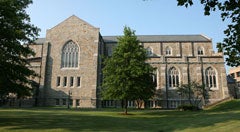April 1–2, 2025
RPI Campus, 110 8th Street, Troy NY
Accommodations: Hilton Garden Inn Troy—Reserve a room
Please join us on April 1–2, 2025, for a day and a half of collaboration and discussions on Quantum Computing with experts. There will be plenary sessions, panels, and workshops led by four Quantum Computing Centers (QCCs): BasQ, Cleveland Clinic, Quebec, and RPI.
Day one will feature two afternoon workshops: HPC and Quantum Integration, and Quantum Education. Day two will include plenary sessions, panels, and breakout sessions led by four Quantum Computing Centers (QCC): BasQ, Cleveland Clinic, Quebec, and RPI.
John E. Kolb
Vice President and Head of RPI Future of Computing Institute (FOCI)
Rensselaer Polytechnic Institute (RPI)
Jeannette (Jamie) Garcia
Technical Program Director, Algorithms & Partnerships, IBM Quantum: Sr Location Executive Almaden
International Business Machines Corporation (IBM)
Agenda for Quantum Forum 2025
Tuesday (01 April 2025)
Hilton Garden Inn, 235 Hoosick St, Troy, NY
3:00 pm - 5:00 pm – Afternoon workshops (in parallel)
- HPC and Quantum Integration – Location: Hilton Garden Inn, Sage II
- Quantum Education – Location: Hilton Garden Inn, Sage I
5:30 pm - 7:30 pm – Cocktails and Dinner – Location: Hilton Garden Inn, Fireside Lounge/Grill
Wednesday (02 April 2025)
EMPAC | Experimental Media and Performing Arts Center at Rensselaer, 50 8th St, Troy, NY.
Please note that transportation from the hotel to EMPAC is not provided. We encourage carpooling or using ridesharing services (Uber or Lyft) for your convenience.
8:00 am – Light Breakfast – Location: EMPAC Evelyn’s Café
8:30 am – 8:35 am – Welcome – John Kolb, VP and Head of The Future of Computing Institute
MORNING SESSIONS BEGIN
8:35 am – 9:00 am – Keynote, Martin A. Schmidt, President, Rensselaer Polytechnic Institute
Martin A. Schmidt
President of Rensselaer Polytechnic Institute (RPI)
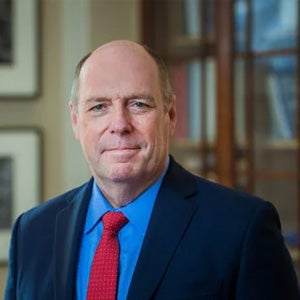 Martin A. Schmidt, the 19th President of Rensselaer Polytechnic Institute (RPI), took office on July 1, 2022. Prior to coming to RPI, Schmidt served as the provost of Massachusetts Institute of Technology (MIT) since 2014 and was also MIT's senior academic and budget officer. He was responsible for the Institute’s educational programs, as well as for the recruitment, promotion, and tenuring of faculty. As provost, he worked closely with MIT’s deans to establish academic priorities, and with other members of the Institute’s senior team to manage financial planning and research support. He also had oversight of MIT’s international engagements.
Martin A. Schmidt, the 19th President of Rensselaer Polytechnic Institute (RPI), took office on July 1, 2022. Prior to coming to RPI, Schmidt served as the provost of Massachusetts Institute of Technology (MIT) since 2014 and was also MIT's senior academic and budget officer. He was responsible for the Institute’s educational programs, as well as for the recruitment, promotion, and tenuring of faculty. As provost, he worked closely with MIT’s deans to establish academic priorities, and with other members of the Institute’s senior team to manage financial planning and research support. He also had oversight of MIT’s international engagements.
Schmidt was a member of MIT's Department of Electrical Engineering and Computer Science faculty since 1988, and also served as director of MIT’s Microsystems Technology Laboratories from 1999 to 2006 and as associate provost from 2008 to 2013. He was also the Ray and Maria Stata Professor of Electrical Engineering and Computer Science, and is a fellow of the Institute of Electrical and Electronics Engineers (IEEE), an international organization aimed at advancing technology.
Schmidt led many of MIT’s efforts to foster an inclusive and well-supported community. In 2016, he began a process to reimagine MIT’s approach to building welcoming and inclusive communities. He provided leaders across campus with resources to improve the climate within their academic areas, and undertook a major restructuring of the Institute Community and Equity Office. He also oversaw the development of an Institute-wide Strategic Action Plan for Diversity, Equity, and Inclusion (DEI), as well as an Ad Hoc Committee on Arts, Culture, and DEI.
Working closely with former MIT Chancellor Cynthia Barnhart, Schmidt launched the university's Values Statement Committee and increased resources for critical student support services. He also created a new faculty development effort to offer training and coaching for faculty as they advance in leadership roles.
In 2018, Schmidt played a central role in the creation of Schwarzman College. Made possible by a $350 million gift, Schwarzman College represented the most significant organizational change at MIT in 70 years. The College aims to strengthen MIT’s core computer science activities by hiring 25 additional faculty; to bridge disciplines between computer science and other disciplines through recruitment of 25 new joint faculty; and to create a new unit to focus on the social and ethical responsibilities of computing.
Together with the provost of Harvard University, Schmidt has co-chaired the board of edX since 2014. He was deeply involved in the execution of a transformative transaction, announced in June 2021, to spin off part of edX to a commercial partner and use the $800 million proceeds to create a new nonprofit. This new nonprofit, still in development, will support an open-source learning platform, and assist learners who are not well served by current online platforms through grant-making and partnerships.
9:00 am – 9:55 am – Session I: RPI – HPC and Quantum Integration
Chris Carothers
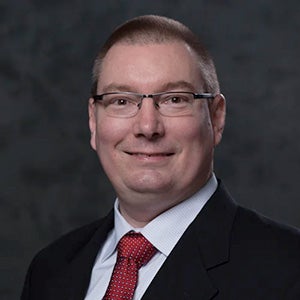
Professor Carothers is the Chief Scientist for the Future of Computing Institute and a faculty member in the Computer Science Department at Rensselaer Polytechnic Institute. His research interests are focused on massively parallel computing, which involves creating high-fidelity models of extreme-scale networks and computer systems. These models, which leverage reverse computing, have been executed using nearly 2,000,000 processing cores on the largest leadership-class supercomputers in the world. Additionally, Professor Carothers has been the Director of the Rensselaer Center for Computational Innovations (CCI) since 2012. Under Professor Carothers’ leadership, the CCI has successfully acquired, installed, and operated three major supercomputer systems spanning a 100x performance increase. The current flagship supercomputer, ”AiMOS,” is an 8 petaFLOP IBM hybrid CPU/GPU system with 126 terabytes of memory and over 8 petabytes of center-wide disk storage. It debuted as the most powerful supercomputer at any private university.
Chris Carothers (Moderator)
 Professor Carothers is the Chief Scientist for the Future of Computing Institute and a faculty member in the Computer Science Department at Rensselaer Polytechnic Institute. His research interests are focused on massively parallel computing, which involves creating high-fidelity models of extreme-scale networks and computer systems. These models, which leverage reverse computing, have been executed using nearly 2,000,000 processing cores on the largest leadership-class supercomputers in the world. Additionally, Professor Carothers has been the Director of the Rensselaer Center for Computational Innovations (CCI) since 2012. Under Professor Carothers’ leadership, the CCI has successfully acquired, installed, and operated three major supercomputer systems spanning a 100x performance increase. The current flagship supercomputer, ”AiMOS,” is an 8 petaFLOP IBM hybrid CPU/GPU system with 126 terabytes of memory and over 8 petabytes of center-wide disk storage. It debuted as the most powerful supercomputer at any private university.
Professor Carothers is the Chief Scientist for the Future of Computing Institute and a faculty member in the Computer Science Department at Rensselaer Polytechnic Institute. His research interests are focused on massively parallel computing, which involves creating high-fidelity models of extreme-scale networks and computer systems. These models, which leverage reverse computing, have been executed using nearly 2,000,000 processing cores on the largest leadership-class supercomputers in the world. Additionally, Professor Carothers has been the Director of the Rensselaer Center for Computational Innovations (CCI) since 2012. Under Professor Carothers’ leadership, the CCI has successfully acquired, installed, and operated three major supercomputer systems spanning a 100x performance increase. The current flagship supercomputer, ”AiMOS,” is an 8 petaFLOP IBM hybrid CPU/GPU system with 126 terabytes of memory and over 8 petabytes of center-wide disk storage. It debuted as the most powerful supercomputer at any private university.
Osama Raisuddin
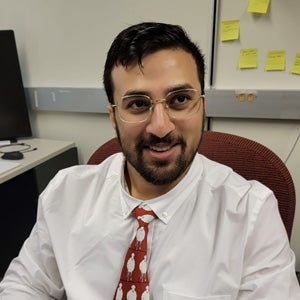 Dr. Osama Raisuddin is a Research Scientist at the Scientific Computing and Research Center at Rensselaer Polytechnic Institute focusing on quantum algorithm development, HPC-Quantum integration, and implementing quantum algorithms on noisy devices.
Dr. Osama Raisuddin is a Research Scientist at the Scientific Computing and Research Center at Rensselaer Polytechnic Institute focusing on quantum algorithm development, HPC-Quantum integration, and implementing quantum algorithms on noisy devices.
He earned his doctorate in Aeronautical Engineering from Rensselaer Polytechnic Institute in 2024, and a Bachelor’s Degree in Mechanical Engineering from Orta Dogu Teknik Universitesi in 2016. His doctoral dissertation focused on developing and analyzing iterative quantum algorithms for the solution of elliptic partial differential equations using the finite element method.
Brian Callahan
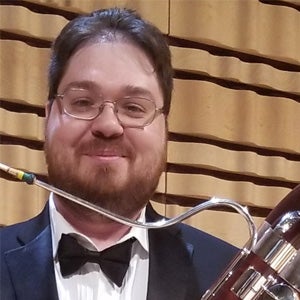 Brian Callahan is the Graduate Program Director and Senior Lecturer in the Information Technology and Web Science program at Rensselaer Polytechnic Institute. He is the Director of the Rensselaer Cybersecurity Collaboratory, where his research interests include business and social cases for cybersecurity, the intersection of Generative AI and cybersecurity, the intersection of quantum computing and cybersecurity, and improving security knowledge for everyday people. He teaches a variety of cybersecurity courses ranging from red teaming to cloud security, and is the faculty coach and sponsor of RPI's premier CTF team. He can be found online at https://briancallahan.net.
Brian Callahan is the Graduate Program Director and Senior Lecturer in the Information Technology and Web Science program at Rensselaer Polytechnic Institute. He is the Director of the Rensselaer Cybersecurity Collaboratory, where his research interests include business and social cases for cybersecurity, the intersection of Generative AI and cybersecurity, the intersection of quantum computing and cybersecurity, and improving security knowledge for everyday people. He teaches a variety of cybersecurity courses ranging from red teaming to cloud security, and is the faculty coach and sponsor of RPI's premier CTF team. He can be found online at https://briancallahan.net.
Tomonori Shirakawa
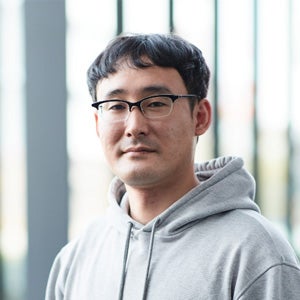 Tomonori Shirakawa received a Ph. D of Science from Chiba University in 2008, and subsequently spent one and a half years as a JSPS Research Fellow at Leibniz University Hannover in Germany. From 2009, he joined the RIKEN until 2018. After spending a year at SISSA in Italy, he returned to the RIKEN Center for computational Science, where he has been a Senior Scientist since 2021. Currently, he is participating in a quantum–HPC hybrid project launched in 2023, focusing on developing applications for quantum many-body problems using quantum-HPC hybrid computing systems.
Tomonori Shirakawa received a Ph. D of Science from Chiba University in 2008, and subsequently spent one and a half years as a JSPS Research Fellow at Leibniz University Hannover in Germany. From 2009, he joined the RIKEN until 2018. After spending a year at SISSA in Italy, he returned to the RIKEN Center for computational Science, where he has been a Senior Scientist since 2021. Currently, he is participating in a quantum–HPC hybrid project launched in 2023, focusing on developing applications for quantum many-body problems using quantum-HPC hybrid computing systems.
Iskander Sitdikov
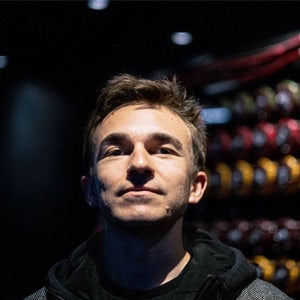 Iskandar is a software architect at IBM Quantum, responsible for software ecosystem for large-scale quantum-classical systems. He has a background in distributed computing and machine learning and holds degrees in mathematics and computer science.
Iskandar is a software architect at IBM Quantum, responsible for software ecosystem for large-scale quantum-classical systems. He has a background in distributed computing and machine learning and holds degrees in mathematics and computer science.
10:00 am – 10:55 am – Session II: Cleveland Clinic—Healthcare and Life Sciences
Kenneth Merz, Ph.D
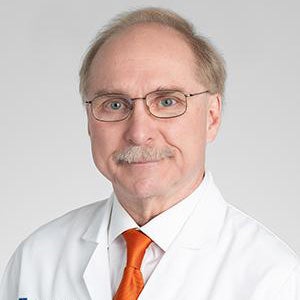 Kenneth M. Merz, Jr. is currently a member of the Staff of the Center for Computational Life Sciences at the Lerner Research Institute of the Cleveland Clinic. His research interest lies in the development of theoretical and computational tools and their application to biological problems including structure and ligand based drug design, mechanistic enzymology and quantum and high-performance computing.
Kenneth M. Merz, Jr. is currently a member of the Staff of the Center for Computational Life Sciences at the Lerner Research Institute of the Cleveland Clinic. His research interest lies in the development of theoretical and computational tools and their application to biological problems including structure and ligand based drug design, mechanistic enzymology and quantum and high-performance computing.
Kenneth Merz, Ph.D (Moderator)
 Kenneth M. Merz, Jr. is currently a member of the Staff of the Center for Computational Life Sciences at the Lerner Research Institute of the Cleveland Clinic. His research interest lies in the development of theoretical and computational tools and their application to biological problems including structure and ligand based drug design, mechanistic enzymology and quantum and high-performance computing.
Kenneth M. Merz, Jr. is currently a member of the Staff of the Center for Computational Life Sciences at the Lerner Research Institute of the Cleveland Clinic. His research interest lies in the development of theoretical and computational tools and their application to biological problems including structure and ligand based drug design, mechanistic enzymology and quantum and high-performance computing.
Ruihao Li
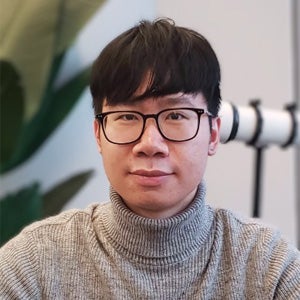 Ruihao Li is currently a Quantum Research Data Scientist at the Center for Computational Life Sciences of Cleveland Clinic. He earned his Ph.D. in theoretical physics from Case Western Reserve University in 2024, specializing in many-body physics and topological materials. His current research endeavors focus on leveraging near-term quantum computers to explore intricate challenges within the domains of physics and life sciences. These endeavors encompass the areas of quantum simulation and optimization.
Ruihao Li is currently a Quantum Research Data Scientist at the Center for Computational Life Sciences of Cleveland Clinic. He earned his Ph.D. in theoretical physics from Case Western Reserve University in 2024, specializing in many-body physics and topological materials. His current research endeavors focus on leveraging near-term quantum computers to explore intricate challenges within the domains of physics and life sciences. These endeavors encompass the areas of quantum simulation and optimization.
Mario Motta
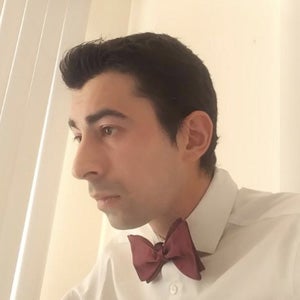 Mario Motta is a Senior Research Staff Member at IBM Quantum, T. J. Watson Research Center. He obtained a Ph.D. in physics in 2015 from the University of Milan (Italy) in the group of professor Davide Galli. Between 2016 and 2019 he was a postdoc in the groups of professors Shiwei Zhang (College of William and Mary) and Garnet Chan (Caltech), focused on classical and quantum computational methods for many-electron systems. He joined IBM Quantum in 2019, working on quantum simulation of electronic structure.
Mario Motta is a Senior Research Staff Member at IBM Quantum, T. J. Watson Research Center. He obtained a Ph.D. in physics in 2015 from the University of Milan (Italy) in the group of professor Davide Galli. Between 2016 and 2019 he was a postdoc in the groups of professors Shiwei Zhang (College of William and Mary) and Garnet Chan (Caltech), focused on classical and quantum computational methods for many-electron systems. He joined IBM Quantum in 2019, working on quantum simulation of electronic structure.
Dan Blackenberg
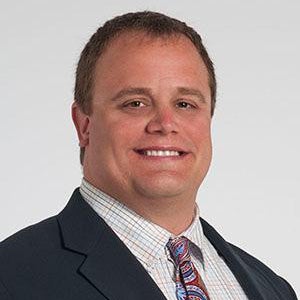 Dr. Daniel Blankenberg is an Associate Staff in the Center for Computational Life Sciences at the Cleveland Clinic Lerner Research Institute and an Assistant Professor of Molecular Medicine at Case Western Reserve University, where his lab develops FAIR computational methods for large-scale biological data analysis. He holds a PhD in Biochemistry, Microbiology, and Molecular Biology from Penn State and a BS in Biochemistry & Molecular Biology and Computer Science from Gettysburg College. He is a co-lead of the Galaxy Project and serves as the Cleveland Clinic lead for Quantum Computing within the CCF-IBM Discovery Accelerator.
Dr. Daniel Blankenberg is an Associate Staff in the Center for Computational Life Sciences at the Cleveland Clinic Lerner Research Institute and an Assistant Professor of Molecular Medicine at Case Western Reserve University, where his lab develops FAIR computational methods for large-scale biological data analysis. He holds a PhD in Biochemistry, Microbiology, and Molecular Biology from Penn State and a BS in Biochemistry & Molecular Biology and Computer Science from Gettysburg College. He is a co-lead of the Galaxy Project and serves as the Cleveland Clinic lead for Quantum Computing within the CCF-IBM Discovery Accelerator.
Zhiding Liang
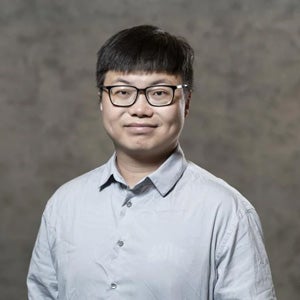 Zhiding Liang is an assistant professor at Rensselaer Polytechnic Institute (RPI) CS department. He received a PhD degree from the University of Notre Dame and B.S. from University of Wisconsin-Madison. His research focuses on the architecture design, compiler, control & calibration algorithms for quantum computing, He has been selected as a DAC Young Fellow in both 2021 and 2022, and the ML and Systems Rising Star in 2025.
Zhiding Liang is an assistant professor at Rensselaer Polytechnic Institute (RPI) CS department. He received a PhD degree from the University of Notre Dame and B.S. from University of Wisconsin-Madison. His research focuses on the architecture design, compiler, control & calibration algorithms for quantum computing, He has been selected as a DAC Young Fellow in both 2021 and 2022, and the ML and Systems Rising Star in 2025.
10:55 am – 11:10 am – Break
11:10 am – 12:00 pm – Breakout Sessions (Select One)
- HPC and Quantum Integration – Location: EMPAC Level 5 Mezzanine
- Healthcare and Life Sciences – Location: EMPAC Level 6 Mezzanine
12:00 pm – 1:00 pm – Buffet Lunch – Location: Studio Beta, EMPAC
AFTERNOON SESSIONS BEGIN
1:00 pm – 1:30 pm – Keynote, Jay Gambetta, VP of Quantum, IBM Fellow
Dr. Jay M. Gambetta
IBM Fellow and VP of IBM Quantum
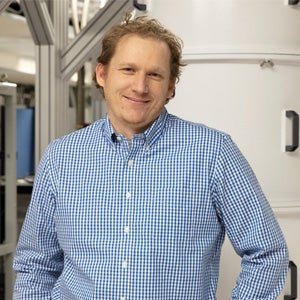 Dr. Jay Gambetta is the Vice President in charge of IBM’s overall Quantum initiative, and an IBM Fellow in recognition of his leadership in advancing superconducting quantum computing and establishing IBM’s quantum strategy to bring quantum computing to the world, and to make the world quantum safe. Under his leadership, IBM has grown to become the predominant quantum service utilized by 649,000+ users, including 280+ members of the IBM Quantum Network, to run over 3 trillion quantum circuits. To date, IBM Quantum has deployed over 80 quantum systems online, building the foundations of the quantum industry. In addition, he was responsible for the creation and early development of Qiskit; the leading open-source quantum computing software development kit.
Dr. Jay Gambetta is the Vice President in charge of IBM’s overall Quantum initiative, and an IBM Fellow in recognition of his leadership in advancing superconducting quantum computing and establishing IBM’s quantum strategy to bring quantum computing to the world, and to make the world quantum safe. Under his leadership, IBM has grown to become the predominant quantum service utilized by 649,000+ users, including 280+ members of the IBM Quantum Network, to run over 3 trillion quantum circuits. To date, IBM Quantum has deployed over 80 quantum systems online, building the foundations of the quantum industry. In addition, he was responsible for the creation and early development of Qiskit; the leading open-source quantum computing software development kit.
1:35 pm – 2:25 pm – Session III: Quebec – Sustainability
Cunlu Zhou
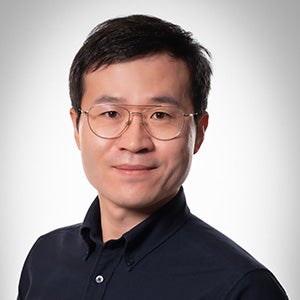 Cunlu Zhou is an assistant professor of computer science at the Université de Sherbrooke and an inaugural holder of the IBM Quantum Research Chair. He earned his PhD in mathematics from the University of Notre Dame in 2019 and held postdoctoral positions at the University of Toronto and the University of New Mexico. His research focuses on the interplay between quantum computing, complexity theory, and quantum many-body physics.
Cunlu Zhou is an assistant professor of computer science at the Université de Sherbrooke and an inaugural holder of the IBM Quantum Research Chair. He earned his PhD in mathematics from the University of Notre Dame in 2019 and held postdoctoral positions at the University of Toronto and the University of New Mexico. His research focuses on the interplay between quantum computing, complexity theory, and quantum many-body physics.
Ghislain Lefebvre (Moderator)
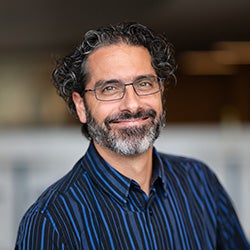 Ghislain Lefebvre leads the Quantum AlgoLab team and oversees partnerships at the Institut quantique. His efforts have fostered quantum computing collaborations with organizations such as Thales, Natural Resources Canada, Agriculture Canada, the Bank of Canada, IBM, Pasqal, Nord Quantique, and LeddarTech. His passion for teaching also inspired him to direct the creation of the animated video series The Quantum Enigmas and The 2-Qubit Dance, which provide a simple and engaging introduction to quantum computing.
Ghislain Lefebvre leads the Quantum AlgoLab team and oversees partnerships at the Institut quantique. His efforts have fostered quantum computing collaborations with organizations such as Thales, Natural Resources Canada, Agriculture Canada, the Bank of Canada, IBM, Pasqal, Nord Quantique, and LeddarTech. His passion for teaching also inspired him to direct the creation of the animated video series The Quantum Enigmas and The 2-Qubit Dance, which provide a simple and engaging introduction to quantum computing.
Ghislain began his career as a physics teacher at various colleges across the province of Quebec. He later co-founded a brewery with his spouse, where he served as president and head brewer, overseeing the quality assurance program. In 2020, he joined the Institut quantique to establish the Quantum AlgoLab.
Christophe Pere
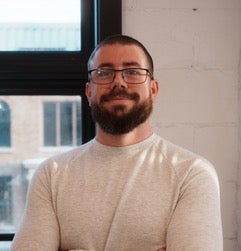 Dr. Christophe Pere is a leading researcher in quantum machine learning, specializing in bridging quantum technologies with real-world applications. As the Scientific Director at PINQ², he leads applied research in quantum machine learning, and optimization. He is deeply involved in mentorship, education, and shaping global quantum strategies. With a background in astrophysics and experience across cybersecurity, NLP, and computer vision, he is passionate about advancing quantum computing through research, teaching, and public outreach.
Dr. Christophe Pere is a leading researcher in quantum machine learning, specializing in bridging quantum technologies with real-world applications. As the Scientific Director at PINQ², he leads applied research in quantum machine learning, and optimization. He is deeply involved in mentorship, education, and shaping global quantum strategies. With a background in astrophysics and experience across cybersecurity, NLP, and computer vision, he is passionate about advancing quantum computing through research, teaching, and public outreach.
Jamie Garcia
 Dr. Jeannette M. Garcia is the Senior Research Manager for Quantum Applications and Software team at IBM Research. Her team's research focuses on quantum computational science, theory, and software for quantum computing applications. One of her principal efforts is on the applicaiton of quantum computers to chemistry and materials simulations. Previously, Garcia's research interests have focused on the rational design of new polymers and materials, targeting recyclable materials with unique mechanical and thermal properties. She has initiated programs in high-performance materials, energy storage, and polymer recycling. The team discovered a new class of recyclable industrial polymers; developed methods to use discarded drink bottles or electronic waste to create high-performance polymers; and designed a low cost, portable detection system for the detection and removal of toxic heavy metals in drinking water.
Dr. Jeannette M. Garcia is the Senior Research Manager for Quantum Applications and Software team at IBM Research. Her team's research focuses on quantum computational science, theory, and software for quantum computing applications. One of her principal efforts is on the applicaiton of quantum computers to chemistry and materials simulations. Previously, Garcia's research interests have focused on the rational design of new polymers and materials, targeting recyclable materials with unique mechanical and thermal properties. She has initiated programs in high-performance materials, energy storage, and polymer recycling. The team discovered a new class of recyclable industrial polymers; developed methods to use discarded drink bottles or electronic waste to create high-performance polymers; and designed a low cost, portable detection system for the detection and removal of toxic heavy metals in drinking water.
Garcia received her BS from Seattle University, and PhD in Chemistry at Boston College under the guidance of Prof. Amir H. Hoveyda, where she focused on catalyst design and development. When she first joined IBM Research in 2012 as a postdoctoral researcher, she worked with Dr. Jim Hedrick on high performance and recyclable materials. She became a Research Staff Member in 2013 and from 2017-2018, served as the Technical Advisor to Dr. Sophie Vandebroek, COO of IBM Research, at IBM Research headquarters located in Yorktown Heights, NY. From 2018-2019 she was a manager and Global Lead for Quantum Applications in Quantum Chemistry and Science.
Garcia is one of MIT Tech Review’s 2015 35 Innovators Under 35, one of Business Insider’s 17 IBM Research Rock Stars, and the recipient of the Individual World Technology Award in Materials. In 2016, Garcia was named as one of Foreign Policy's Top 100 Global Thinkers. In 2017, she was the first recipient of the ACS POLY Division's Young Industrial Polymer Chemist Award and also selected as a YWCA Emerging Leader. In 2019, she was selected for the Silicon Valley Business Journal’s 40 under 40 list. She was selected for the 2022 Racheff Lecture at the University of Illinois Urbana-Champaign. She has authored over 40 papers, has over 115 patents granted or pending and is an IBM Master Inventor. Her work has been featured in The New York Times, CNN, Wall Street Journal, National Public Radio (NPR), and Scientific American.
Cunlu Zhou

Cunlu Zhou is an assistant professor of computer science at the Université de Sherbrooke and an inaugural holder of the IBM Quantum Research Chair. He earned his PhD in mathematics from the University of Notre Dame in 2019 and held postdoctoral positions at the University of Toronto and the University of New Mexico. His research focuses on the interplay between quantum computing, complexity theory, and quantum many-body physics.
Fabian Faulstich
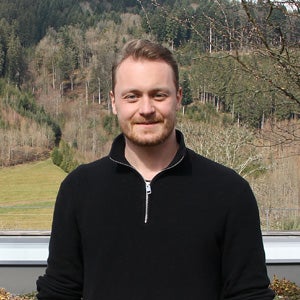 Dr. Faulstich earned his B.Sc. in Physics and Mathematics, as well as his M.Sc. in Mathematics, from the Technical University of Berlin. He obtained his Ph.D. in Computational Chemistry and Applied Mathematics from the University of Oslo, supervised by Dr. Simen Kvaal, Prof. Dr. Trygve Helgaker, and Prof. Dr. Andre Laestadius.
Dr. Faulstich earned his B.Sc. in Physics and Mathematics, as well as his M.Sc. in Mathematics, from the Technical University of Berlin. He obtained his Ph.D. in Computational Chemistry and Applied Mathematics from the University of Oslo, supervised by Dr. Simen Kvaal, Prof. Dr. Trygve Helgaker, and Prof. Dr. Andre Laestadius.
Following his Ph.D., he pursued a postdoctoral position at the Department of Mathematics at the University of California, Berkeley where he worked under Prof. Lin Lin. In August 2023, he was appointed as an Assistant Professor in the Department of Mathematical Sciences, where he now holds the Eliza Ricketts Foundation Career Development Chair.
Dr. Faulstich's research focus is on the development and implementation of new numerical methods for quantum simulation and quantum embedding. More generally, he is interested in the mathematical analysis and the development of electronic-structure methods in quantum chemistry and quantum computing.
2:30 pm – 3:20 pm – Session IV: BasQ—Materials Science
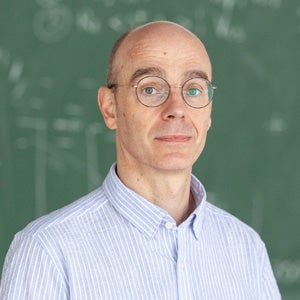 Nicolas Lorente
Nicolas Lorente
Researcher at the Materials Physics Center and at the Donostia International Physics Center of San Sebastian, Basque Country, Spain. Long experience in density functional theory calculations of molecular adsorption on solid surfaces, calcualtions of electronic currents driven through molecular systems, Kondo effect, Electron Paramagnetic Resonance, superconducting phenomena on surfaces and the many-body aspects of spin Hamiltonians.
Previously Lorente has held position of Professeur in the Université Paul Sabatier, Toulouse, France and Researcher in the Centro de Investigaciones en Nanociencia y Nanotecologia in Barcelona, Spain.
For more information please visit:
Nicolas Lorente (Moderator)
 Researcher at the Materials Physics Center and at the Donostia International Physics Center of San Sebastian, Basque Country, Spain. Long experience in density functional theory calculations of molecular adsorption on solid surfaces, calcualtions of electronic currents driven through molecular systems, Kondo effect, Electron Paramagnetic Resonance, superconducting phenomena on surfaces and the many-body aspects of spin Hamiltonians.
Researcher at the Materials Physics Center and at the Donostia International Physics Center of San Sebastian, Basque Country, Spain. Long experience in density functional theory calculations of molecular adsorption on solid surfaces, calcualtions of electronic currents driven through molecular systems, Kondo effect, Electron Paramagnetic Resonance, superconducting phenomena on surfaces and the many-body aspects of spin Hamiltonians.
Previously Lorente has held position of Professeur in the Université Paul Sabatier, Toulouse, France and Researcher in the Centro de Investigaciones en Nanociencia y Nanotecologia in Barcelona, Spain.
For more information please visit:
Seiji Yunoki
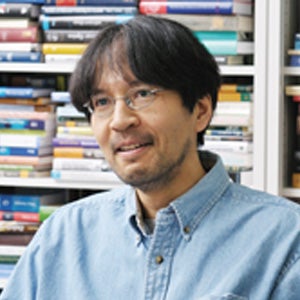 Seiji Yunoki received his Ph.D in Applied Physics from Nagoya University, Japan, in 1996. He was awarded an Overseas Research Fellowships by the Japan Society for the Promotion of Science (JSPS), which allowed him to spend two years at the National High Magnetic Field Laboratory in Tallahassee, USA. After an additional year and a half there, he moved to the University of Groningen, the Netherlands, in 1999 for a two-year postdoctoral position. Subsequently, he spent over four years at SISSA in Trieste, Italy, followed by two and a half years at Oak Ridge National Laboratory and the University of Tennessee, USA. In 2008, he joined RIKEN as an associate Chief Scientist. Currently, he is a Chief Scientist heading the Computational Condensed Matter Physics Laboratory at RIKEN. He also leads the Computational Materials Science Research Team at the RIKEN Center for Computational Science (R-CCS), the Computational Quantum Matter Research Team at the RIKEN Center for Emergent Matter Science (CEMS), and the Quantum Computational Science Research Team at the RIKEN Center for Quantum Computing (RQC). His research focuses primary on quantum computing and its applications in condensed matter physics.
Seiji Yunoki received his Ph.D in Applied Physics from Nagoya University, Japan, in 1996. He was awarded an Overseas Research Fellowships by the Japan Society for the Promotion of Science (JSPS), which allowed him to spend two years at the National High Magnetic Field Laboratory in Tallahassee, USA. After an additional year and a half there, he moved to the University of Groningen, the Netherlands, in 1999 for a two-year postdoctoral position. Subsequently, he spent over four years at SISSA in Trieste, Italy, followed by two and a half years at Oak Ridge National Laboratory and the University of Tennessee, USA. In 2008, he joined RIKEN as an associate Chief Scientist. Currently, he is a Chief Scientist heading the Computational Condensed Matter Physics Laboratory at RIKEN. He also leads the Computational Materials Science Research Team at the RIKEN Center for Computational Science (R-CCS), the Computational Quantum Matter Research Team at the RIKEN Center for Emergent Matter Science (CEMS), and the Quantum Computational Science Research Team at the RIKEN Center for Quantum Computing (RQC). His research focuses primary on quantum computing and its applications in condensed matter physics.
Enrique Rico Ortega
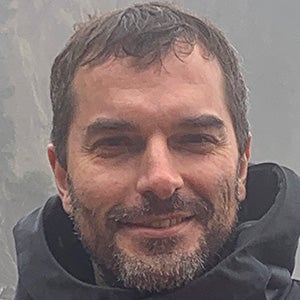 On leave of absence from Ikerbasque research professor at the University of the Basque Country (UPV/EHU) and associated at the Donostia International Physics Center (DIPC).
On leave of absence from Ikerbasque research professor at the University of the Basque Country (UPV/EHU) and associated at the Donostia International Physics Center (DIPC).
Leading the Quantum Matter and Quantum Simulation group at the EHU Quantum Center where the main research lines of the group are the characterisation of Many-Body quantum systems with Quantum Information tools and Quantum Simulation of High-Energy models.
Nowadays, staff member at CERN-TH working for the Next Generation Trigger project and associated at the quantum initiative CERN-QTI.
Actively performing physics research for the last 20 years. Finished my physics degree at the
Universidad Autó noma de Madrid (Spain) with a final year collaboration in theoretical
condensed matter physics, on entanglement in Bose-Einstein condensates.
Antonio Mezzacapo
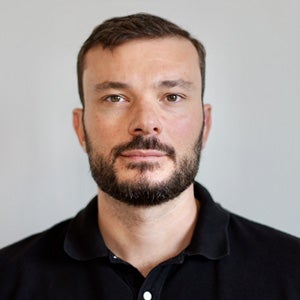 Dr. Antonio Mezzacapo is currently a Principal Research Scientist at IBM Quantum, leading IBM Quantum’s efforts around quantum-centric supercomputing and the applied quantum sciences. One of his areas of interest is quantum simulations of chemistry and materials science, where he contributed with advancements on quantum algorithms for computing molecular energies,more efficient encodings for fermionic simulations, and experiments that have pushed the frontier of quantum simulations with quantum processors. He is interested in understanding how quantum computers can be optimally coupled with classical high-performance computers, and what are the best algorithms and workflows for quantum-centric supercomputing architectures. More broadly, he is interested in how one can use quantum computers to deliver value in quantum-classical computational workflows. In the past, Dr. Mezzacapo has also worked on the characterization of superconducting quantum processors, modeling of quantum gates, and quantum software, with some foundational contributions to the Qiskit software stack.
Dr. Antonio Mezzacapo is currently a Principal Research Scientist at IBM Quantum, leading IBM Quantum’s efforts around quantum-centric supercomputing and the applied quantum sciences. One of his areas of interest is quantum simulations of chemistry and materials science, where he contributed with advancements on quantum algorithms for computing molecular energies,more efficient encodings for fermionic simulations, and experiments that have pushed the frontier of quantum simulations with quantum processors. He is interested in understanding how quantum computers can be optimally coupled with classical high-performance computers, and what are the best algorithms and workflows for quantum-centric supercomputing architectures. More broadly, he is interested in how one can use quantum computers to deliver value in quantum-classical computational workflows. In the past, Dr. Mezzacapo has also worked on the characterization of superconducting quantum processors, modeling of quantum gates, and quantum software, with some foundational contributions to the Qiskit software stack.
Jian Shi
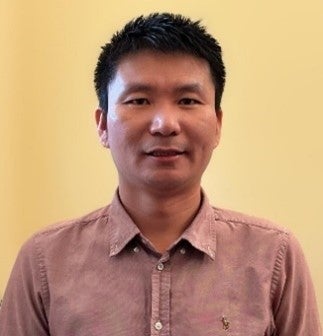 Dr. Jian Shi is a Professor in the Department of Materials Science and Engineering, and Department of Physics at Rensselaer Polytechnic Institute. Dr. Shi is currently also a Simons Foundation Pivot Fellow. Dr. Shi was a postdoctoral research fellow at Harvard University from 2013 to 2014. Dr. Shi received his Ph.D. degree in Materials Science at the University of Wisconsin at Madison in 2012. He is a recipient of the AFSOR Young Investigator program award in 2018, a recipient of IEEE Ferroelectrics Young Investigator Award in 2023, and a recipient of the Simons Foundation Pivot Fellowship in 2024.
Dr. Jian Shi is a Professor in the Department of Materials Science and Engineering, and Department of Physics at Rensselaer Polytechnic Institute. Dr. Shi is currently also a Simons Foundation Pivot Fellow. Dr. Shi was a postdoctoral research fellow at Harvard University from 2013 to 2014. Dr. Shi received his Ph.D. degree in Materials Science at the University of Wisconsin at Madison in 2012. He is a recipient of the AFSOR Young Investigator program award in 2018, a recipient of IEEE Ferroelectrics Young Investigator Award in 2023, and a recipient of the Simons Foundation Pivot Fellowship in 2024.
3:20 pm – 3:35 pm – Break
3:35 pm – 4:25 pm – Breakout Sessions (Select One)
- Sustainability – Location: EMPAC Level 5 Mezzanine
- Materials Science – Location: EMPAC Level 6 Mezzanine
4:45 pm – 6:15 pm – Cocktails and Dinner – Location: Russell Sage Dining Hall (RSDH)
6:30 pm – Sneak Film Preview: Project Chapel by Chris Groban – Location: EMPAC Theater
8:00 pm – Q&A with Film Director Chris Groban
Chris Groban
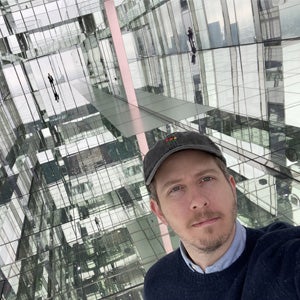 Christopher Groban is an award-winning director and editor, whose eclectic work spans documentaries, commercials, music videos, and live events. He created and directed TV series Confluence for PBS and On The Record with Mick Rock for Ovation, and developed design projects for Beyonce, Bruno Mars, and the CFDA Awards among many others. He has edited a multitude of music videos for artists like Panic At The Disco!, Tori Amos, and Kelis, as well as documentary projects like Joe Manganiello’s La Bare, which played in theaters nationwide. His commercial directing work includes clients such as DoorDash, Illumination Entertainment, ViiV Healthcare, and Western Governor's University, some of which has been screened in Times Square. Most proudly, Groban serves on the board of the Find Your Light Foundation, for whom he has created a number of documentaries to help raise millions for arts education
Christopher Groban is an award-winning director and editor, whose eclectic work spans documentaries, commercials, music videos, and live events. He created and directed TV series Confluence for PBS and On The Record with Mick Rock for Ovation, and developed design projects for Beyonce, Bruno Mars, and the CFDA Awards among many others. He has edited a multitude of music videos for artists like Panic At The Disco!, Tori Amos, and Kelis, as well as documentary projects like Joe Manganiello’s La Bare, which played in theaters nationwide. His commercial directing work includes clients such as DoorDash, Illumination Entertainment, ViiV Healthcare, and Western Governor's University, some of which has been screened in Times Square. Most proudly, Groban serves on the board of the Find Your Light Foundation, for whom he has created a number of documentaries to help raise millions for arts education
8:30 pm – 9:00 pm – Refreshments – Location: EMPAC Evelyn’s Café
